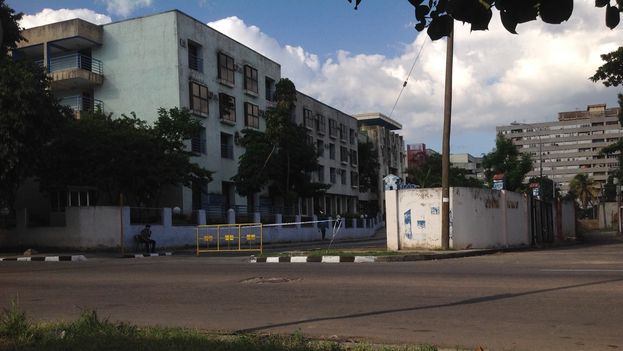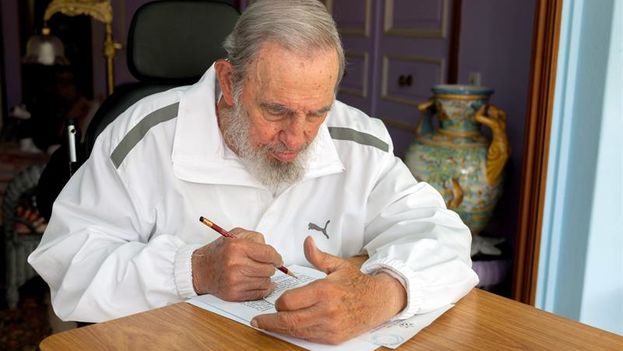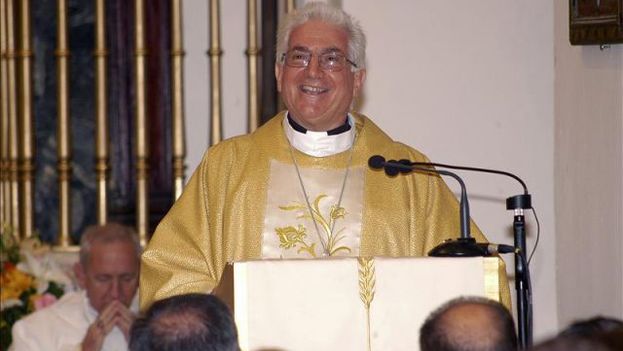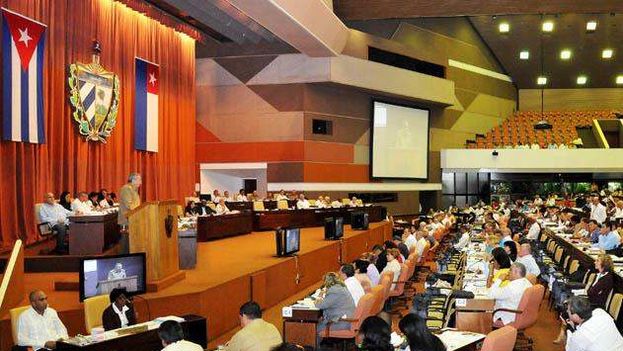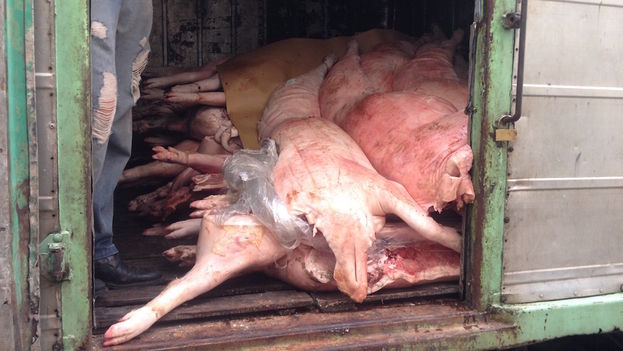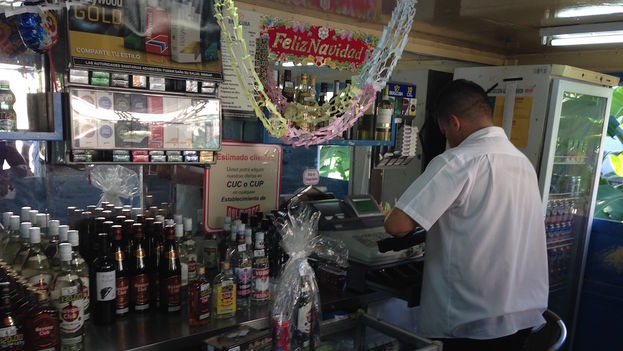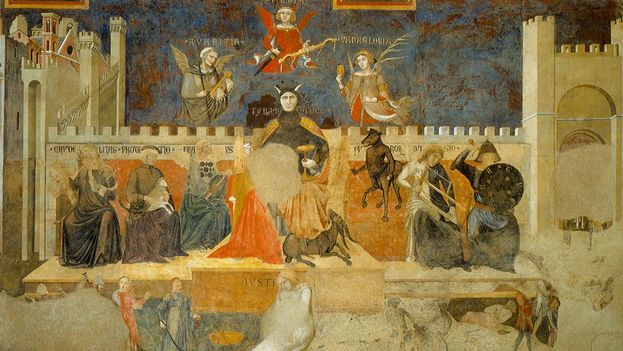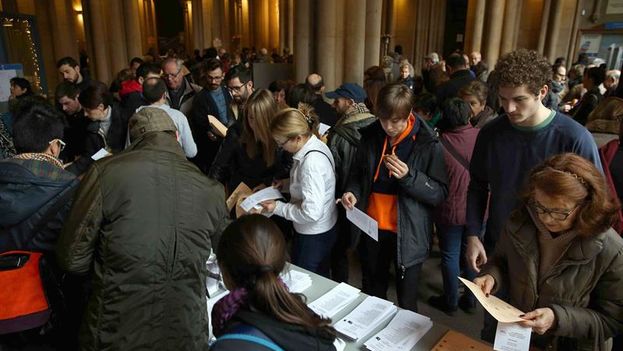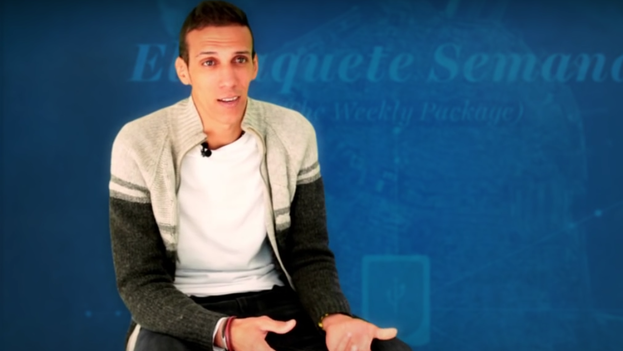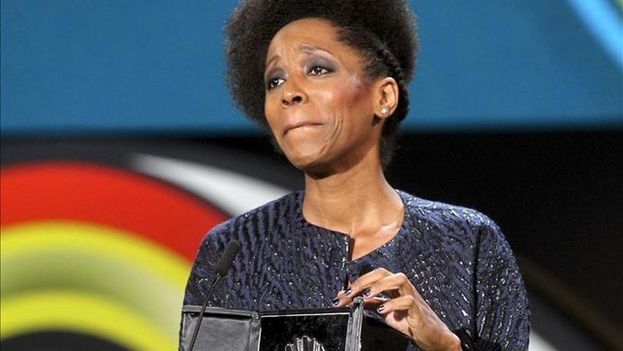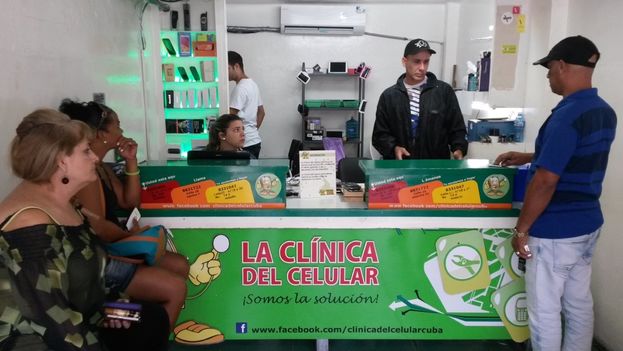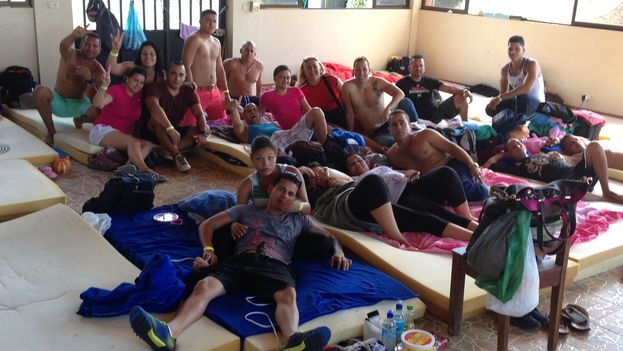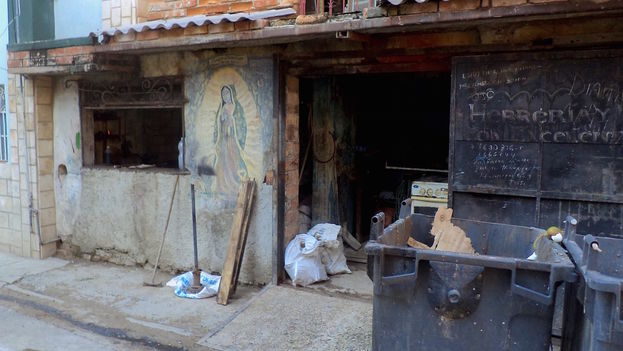
![]() 14ymedio, Pedro Campos, Havana, 1 January 2015 – December 29 was the National Assembly of People’s Power last day of work in its final session of 2015. Cuban State television highlighted two moments: the speech of a delegate, supported by president Raul Castro, blaming intermediaries for the high prices of farm products, and another from a delegate blaming non-State entities for the increase in corruption. Not a single word about the 9,000 Cuban migrants stranded in Central America.
14ymedio, Pedro Campos, Havana, 1 January 2015 – December 29 was the National Assembly of People’s Power last day of work in its final session of 2015. Cuban State television highlighted two moments: the speech of a delegate, supported by president Raul Castro, blaming intermediaries for the high prices of farm products, and another from a delegate blaming non-State entities for the increase in corruption. Not a single word about the 9,000 Cuban migrants stranded in Central America.
It was clearly the intention of Cuban State TV to focus public attention on the “negative” work of non-state forms of production and markets, as a way to divert attention from the bureaucracy which is to blame for the entire disaster that is taking place. continue reading
About corruption in every sphere of the State, which we all hear about every day, not one word. No one asked what happens to the billions of dollars the government collects through taxing the remittances sent to their families by Cubans abroad; no one asked about the State monopolies in internal and external markets; nor about the exploitation of more than four million workers providing services in other countries, especially the thousands of doctors and specialists in different professions working abroad on State contracts; nor about the high taxes paid by the self-employed; nor the artists and athletes who sell their works or provide services outside the country; nor how the State benefits from other countries’ debt forgiveness.
However, Cuban State TV couldn’t avoid showing tiny bits of other speeches, where the delegates addressed the problems of low production, the absence of a wholesale market, and the permanence of the dual currency system, all elements related to State policies.
Of course, we don’t know it there were any speeches addressing the high prices of food and other widely consumed products, because if there were, they took care not to show it, and if there weren’t, it would demonstrate that the Assembly is very badly informed on economic issues, as president Raul Castro indicated in one of his reflections.
They broadcast no speech, if there was one, that commented on the report that 50% of potentially productive land continues to be covered with the invasive marabou weed and is in the hands of the State; or that of those who received land (via leasing and other arrangements) a good share of them have not been able to make it productive because of the number of obstacles the State throws in their way. Nor did they air any speeches about the laughable prices the State pays for the large share of farm production it claims, or that the State companies are often less productive than individual farmers and cooperatives, or that the State continues to pay miserable wages to its workers without adequate stimuli; or that all the processed food – chicken, pasta, oils, sauces, good quality beer, alcohol and others – is sold only through the military monopoly of the “Hard Currency Collection Stores” (as they are called) and in Cuban Convertible Pesos, which continue to trade at 1 for 25 of the measly Cuban pesos, the currency in which wages are paid.
If anyone commented about it, there was no broadcast saying that the State blocks non-state forms of production – as they call the private and cooperative economy – from receiving direct support, be it financing or equipment, from international organizations, as everything has to come through the Government and its system of companies.
Nor did we see any speeches about the high, abusive and absurd taxes the self-employed are subjected to, or that these people have to plow the earth, harvest it and move their supplies and goods in old transport equipment, the cost of maintenance of which is unfathomable and requires oil whose high prices have been maintained in the domestic market even though worldwide prices have dropped by more than half.
Nor is anything said about the impact of the increases in retail prices, the State’s refusal to let farmers sell their products directly in Havana, and forcing them to use markets concentrated on the outskirts, where they have to pay taxes and work through intermediaries to get their goods with the consequent increases in in the cost of transportation.
In what seemed like a direct allusion to his personal opposition to the policies approved by the Cuban Communist Party (PCC) at its 6th Congress, President Raul Castro directed Marino Murillo, the national economic czar, to question whether some market formulas such as the law of supply and demand should continue to be applied in the marketing of farm products.
Murillo, raising his eyebrows behind his glasses, a gesture I don’t know if Raul was able to see but which was seen on television, said nothing in response. It is not difficult to imagine the thoughts passing through his brain, given that he studied economics. But he preferred not to speak, and he knows why.
Behind it all is the silent war of the bureaucracy against work that is independent of the State, which they label “non-state forms” to discriminate against it and exclude it. It is not a coincidence that the National Assembly, supposedly in charge of legislating, executing and financing (all at the same time) the Government’s plans, is filled with leaders of the PCC, with bureaucrats from the central administration and from provincial and municipal administrations, with high level officers from the Revolutionary Armed Forces (FAR) and the Ministry of the Interior (MININT), with leaders of the pro-government trade unions and other mass organizations controlled by the PCC.
The bureaucracy gathered there is the same one that was incapable of legislating and enforcing the Guidelines of the 6th Congress of the PCC and, in addition, the one that mercilessly attacks the few measures that managed to get through. I don’t know if it was a coincidence: yesterday afternoon, the self-employed who work in Maestranza Park in Old Havana – toy sellers, photographers, children’s cart-ride providers, light tattoo artists, food vendors – some authorized and duly legalized and others not, were informed that “the Party and the Government” had decided they could no longer work there, without any further explanation.
There is no easy fix, gentlemen: this centralized political and economic statist model should be changed if we want this country to emerge from its current quagmire.



